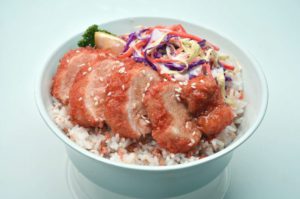
URL Copied
July 19, 2019 9:00 am

Running is a fun way to introduce exercise in your daily routine, to get fit, or to create relationships with the people around you. Regardless of how simple running seems to be, it is something that newbies should prepare for. Correct meal timing along with preparing healthy recipes in the Philippines can play a significant factor in your performance. With that being said, let’s explore some of the most essential tips to gun-start your fun and injury-free run.
Why do you want to run? What is your motivation for doing this? Whatever goals you have, always keep this in your mind when you have a scheduled run. This will help you get out of your lazy bed, and head on to the race event.
For newbies, register for a short mileage first, then increase your distance as your body slowly adapts to running. Most new runners try a 5K distance which is less intimidating than a longer race.
Choose a pair of running shoes and socks that you are comfortable with. This is to avoid blisters and other injury. You may also create your playlist that you can listen to during the run.
It is important that you are aware of your health metrics such as your weight (before and after) and blood pressure, at the very least. These will be your tracker in monitoring your progress.
Give your body a month to prepare for your first run. Do the following for at least a month before the scheduled fun run:
For beginners, do the run-walk method (introduced by the Olympian Jeff Galloway). This technique does not mean that you walk when you get tired, rather, it means taking walk breaks when you’re not. For beginners you can choose to run for 10-30 seconds, then walk for 1-2 minutes, and repeat for the whole duration of the run. You may adjust the ratio based on what your body can adapt.
Do not forget to do warm-up and cool down exercises before and after engaging in exercises.

Honey Lemon Chicken Rice Bowl
Making sure that you are fuelled with balanced and healthy recipes in the Philippines is critical. But keep in mind that what you consume before, during, and after the run will definitely affect your running performance. Below are some general reminders to help you prepare for the fun run:
Eat a hearty, high carbohydrates, fat-controlled dinner and bedtime snack (at least 8 hours before the event).
Eat a light, high carbohydrates, low fiber, fat-controlled snack or breakfast (allow 3 hours for the food to be digest).
Take your recovery meal packed with carbohydrates (to restore muscle energy) and protein (for building and repairing worn-out muscles) within 30 minutes after the event.
Adequate hydration is important before, during, and after the event to ensure optimal health and performance.
Always make sure that you are completely rested before and after the event to help in muscle recovery.
Your fitness journey need not to be boring. Add some fun to it by tagging your friend and together, share the road to fitness.
References
American Dietetic Association, Dietitians of Canada, and the American College of Sports Medicine. (2016, March). Position of the Academy of Nutrition and Dietetics, Dietitians of Canada, and the American College of Sports Medicine: Nutrition and Athletic Performance. Journal of Academy of Nutrition and Dietetics. 116 (3): 501-528. Retrieved from https://www.eatrightpro.org/-/media/eatrightpro-files/practice/position-and-practice-papers/position-papers/nutritionathleticperf.pdf
Pope. T.P. (n.d.). How to Start Running. Multisport PH . Retrieved from https://www.nytimes.com/guides/well/how-to-start-running
Potgieter, Sunita. (2013). Sports Nutrition: A Review of the Latest Guidelines for Exercise and Sport Nutrition from the American College of Sport Nutrition, the International Olympic Committee and the International Society for Sports Nutrition. South African Journal of Clinical Nutrition . 26 (1): 6-16.
Reyes, L.A. (2017, January 16). In Running, Start Slow to Finish Faster. NY Times . Retrieved from https://multisport.ph/2017/01/in-running-start-slow-to-finish-faster/

Deborah A. Sales, RND is a licensed nutritionist-dietitian handling the Science Communication Section of AJINOMOTO PHILIPPINES CORPORATION’s Public Relations Department. She is a technical expert in food and health and an experienced Culinary Nutrition spokesperson.
Disclaimer:
This blog contains general information about exercise, fitness, diet, nutrition and related subjects intended for general educational purposes only. The words and other content provided in this material, and in any linked or referenced materials, are not intended and should not be construed as a health, medical, fitness, diet or nutrition advice. Always consult with a licensed physician and/or health workers before beginning any exercise, fitness, diet or nutrition routine especially if the reader is pregnant or having a special medical condition. Information presented herein, are in no way intended to substitute formal and legitimate consultations with your healthcare providers.
The views expressed on this blog and website have no relation to those of any academic or organizations mentioned as reference in this article.